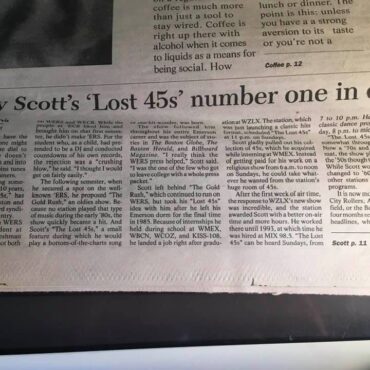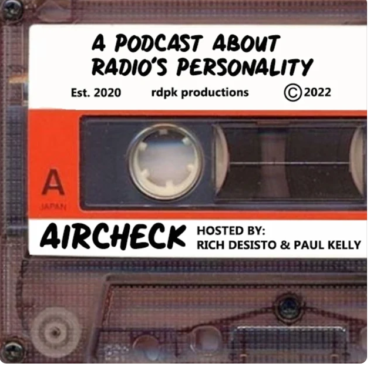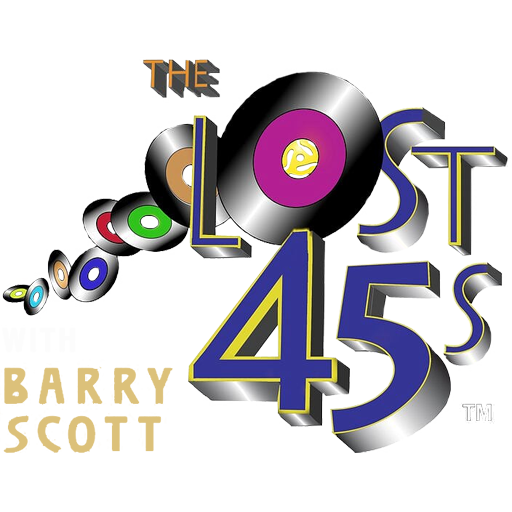 Oldies
Oldies
by Calvin Gilbert
Finding A 60s, 70s and 80s Niche
It’s a place where the Bay City Rollers and Rick Springfield still rule alongside the Partridge Family and the Captain & Tennile. And while Barry Scott isn’t suggesting that these artists become staples of your programming, he’s given the music a home with his syndicated show, The Lost 45s.
On the air in Boston since 1981, The Lost 45s is now heard in national syndication and on the internet at www.lost45.com. More than just playing hits from the mid 60s, 70s and 80s, Scott re-creates the era through artist interviews and a barrage of sound bites from movies and TV shows, along with archival newscasts and catch phrases from popular commercials.
When Scott began the show as a student at Emerson College, he tells R&R, “There was no Oldies station, and virtually nobody playing anything that was more than a year or so old.” After launching as an Oldies show that featured music from the 50s and 60s, Scott says, “I noticed that the 70s songs- especially those by the Partridge Family, the Captain & Tennille, and ABBA – were the ones that most people were calling for. That became the focus of the show as soon as I realized that there was no other outlet for those people to get these songs.”
What constitutes a “Lost 45”? Scott answers, “It’s a Top 40 record from the mid 60s, 70s and 80s that isn’t given adequate airplay. There are some reasons for that. Some of them don’t test well when stations do their research. Some of them are novelty songs that I wouldn’t recommend playing as part of a normal format. But when you play them all together in a group, they take on a different meaning. Listeners catch on to what we’re doing.”
While the show features one-hit wonders, most of the music consists of top 10 hits from gold – and platinum – selling acts. Scott says, “If you look at any generic Oldies station’s playlist, for the most part you’d be lucky if they were playing a couple of hundred songs. If you look at any chart from the mid 60s, 70s and 80s – and look at a list of 40 songs – stations are probably programming five or six. That leaves a good 34 songs that haven’t been heard since. I think that that programmers are underestimating the average listener’s intelligence and their memory of the era.”
Remembering A ‘Hero’
With Classic Rock and Classic Hits stations emphasizing muscle in their programming, isn’t there a certain “wimp factor” involved in playing songs such as “The Night Chicago Died” by Paper Lace? Scott says, “We don’t do a lot of ballads. We try to keep it a little up-tempo. People have a fondness for some of those wimpy songs from when they were growing up. They probably wouldn’t like those songs if they came out now while they were adults.”
‘”Billy Don’t Be A Hero’ [by Bo Donaldson & The Heywoods] is a good example. I was 11 when that song went to No. 1 in 1974. I loved that song. Now I’m a 35-year-old-guy, along with my listeners, and I still have a fondness for that song, as silly as it is. ” People have a wide range of musical tastes, and a lot of programmers don’t take that into account.
Much of the show’s success comes from the extras Scott provides from his custom library of CDs, including 63 of TV and film clips and 14 CDs of news clips. He says, “When you’re playing Captain & Tennille or ‘Saturday Night’ by the Bay City Rollers, what you play around it makes the songs sound different. You want to create the whole era and put everything together to make it sound like your living in that era.”
Emphasizing that there are “gray-area Lost 45s” that might be occasionally programmed on an Oldies or Classic Rock station, Scott says, ” We play those, but we’d rather play those that are perfectly “Lost 45s”- the ones that you know this is the only place you’ll hear them. There are songs like ‘YMCA’ by The Village People. I’ll play that if a listener requests it, but I know that there are still a lot of disco-oriented shows in most markets, and that the song is still heard fairly often. I’d play ‘In The Navy’ or ‘Macho Man’ instead. Even Elton John has a few “Lost 45s.” If you look at his output of Top 40 records, there are quite a few that nobody plays anymore.”
Finding A Home
“The interesting thing about this show is that your not going to find these songs programmed on the station that’s hosting it, for the most part,” Scott says. ” It fits demographically in a variety of formats, but it doesn’t fit musically in virtually any of them.” Although the program now airs in a variety of formats, including AC, Classic Rock, and Classic Hits, Scott admits that syndicating The Lost 45s has sometimes been difficult. However, he adds, ” If you look at anyone’s personal record library, they might have a Led Zeppelin album and a Lynyrd Skynyrd album, but they might also have the Saturday Night Fever soundtrack. People have a wide range of musical tastes, and a lot of programmers don’t take that into account.”
Scott is also the first to admit that he doesn’t possess the generic air voice usually found on syndicated radio shows. He says, “We’ve had a couple of syndicators suggest replacing my voice with a New York/L.A. big bass voice. To be honest with you, if you’re going to be playing the Partridge Family – or ‘Stumblin’ In’ by Suzi Quatro or ‘Rock Me Gently’ [Andy Kim] – it would be silly to have a voice that’s not as average and typical as the records I’m playing. I’d like people to think that this is an average guy in his basement playing 45s.”
“I have a love for this. These songs are songs I love. I don’t think any person just voicing the show could possibly match someone who absolutely loves the era and the music. When these songs are playing, I’m usually cranking them up in the studio and singing with them, much to my producer’s delight.”
We Had Joy We Had Fun, Scott’s book of artist interviews, is now in its fifth printing, and Varese Sarabande released a 14-song CD compilation, Barry Scott Presents “The Lost 45s” Of The 70s And 80s in 1998. A second CD volume was released in 2000 and features 18 more charted Top 40 “Lost 45s.” Additional information is available on Scott’s website, www.lost45.com.
Is there a “Lost 45” from the mid 60s, 70s and 80s that Scott would refuse to play? Perhaps one that should remain lost? “Only as a chronological example,” he says. “This show was on the air when Debbie Gibson and Tiffany and New Kids On The Block came out, and we play that era now. I’ve learned never to say never!”







Post comments (0)